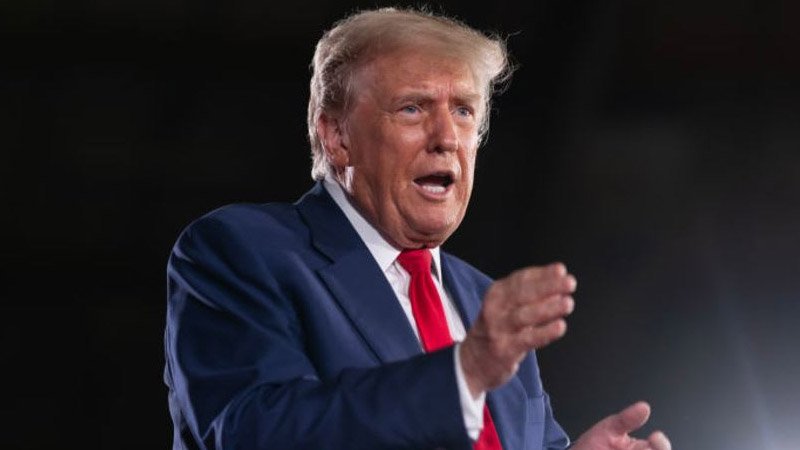
Image Source: Getty Images | Photo By Scott Olson
President Donald Trump is intensifying his hardline immigration crackdown, invoking a centuries-old wartime statute to expedite mass deportations—while drawing serious constitutional concerns in the process.
Trump is now leveraging the Alien Enemies Act of 1798, a rarely used law most notably employed during World War II to justify internment camps, in his bid to deport non-citizens—particularly those accused of gang affiliations—without the typical due process guaranteed under U.S. law.
Earlier this month, the Supreme Court gave the green light for the Trump administration to proceed with removals under the act. While the court affirmed that deportees must be granted an opportunity to challenge their removal, the president appears to be brushing aside this legal safeguard.
Bypassing the Courts: ‘We Don’t Have 200 Years’
Taking to his Truth Social platform, Trump dismissed the feasibility of due process altogether.
“We cannot give everyone a trial, because to do so would take, without exaggeration, 200 years,” he posted.
“Such a thing is not possible to do. We are sending hundreds of thousands of illegals out of the country… If we don’t get these criminals out, we won’t have a country any longer.”
Legal experts immediately pointed out that this line of thinking openly conflicts with the Fourteenth Amendment, which guarantees procedural protections including notice and a fair hearing before any deprivation of liberty or property.
According to the National Constitution Center, these protections extend to “any person,” not just U.S. citizens—a vital distinction in immigration law.
Legal Experts: ‘A Direct Betrayal of the Constitution’
Constitutional scholars and commentators have condemned Trump’s remarks as not just inflammatory—but potentially impeachable.
One legal thread on Reddit’s r/law community stated:
“Trump’s rhetoric directly betrays his oath of office… rejecting a foundational constitutional protection erodes the legal fabric of American democracy.”
The thread went on to argue that his public rejection of due process “should be grounds for removal from office,” highlighting the dangerous precedent of allowing a sitting president to disregard constitutional rights.
Deportations Already Underway—Without Hearings
Despite ongoing legal battles and widespread criticism, the Trump administration has already deported hundreds of migrants using the Alien Enemies Act. Among them are over 260 individuals alleged to have gang ties, including suspected members of MS-13 and Venezuela’s Tren de Aragua.
Many have been sent directly to CECOT, El Salvador’s controversial “mega-prison,” known for its harsh conditions and international human rights concerns. Some deportations were carried out even as lower courts attempted to block them, raising further alarm about the erosion of judicial oversight.
Defying the Supreme Court While Citing It
In his posts, Trump vented frustration at the judicial branch, accusing the courts of being “intimidated by the Radical Left.”
“The Courts don’t seem to want me to remove violent criminals and terrorists,” he wrote. “Great Supreme Court Justice Samuel Alito correctly wants to dissolve the pause on deportations. He is right on this.”
Trump framed the courts as part of the problem, suggesting even his own appointed justices were obstructing his mission. This rhetoric—simultaneously praising and undermining the judiciary—has become a hallmark of his broader war with U.S. institutions.


